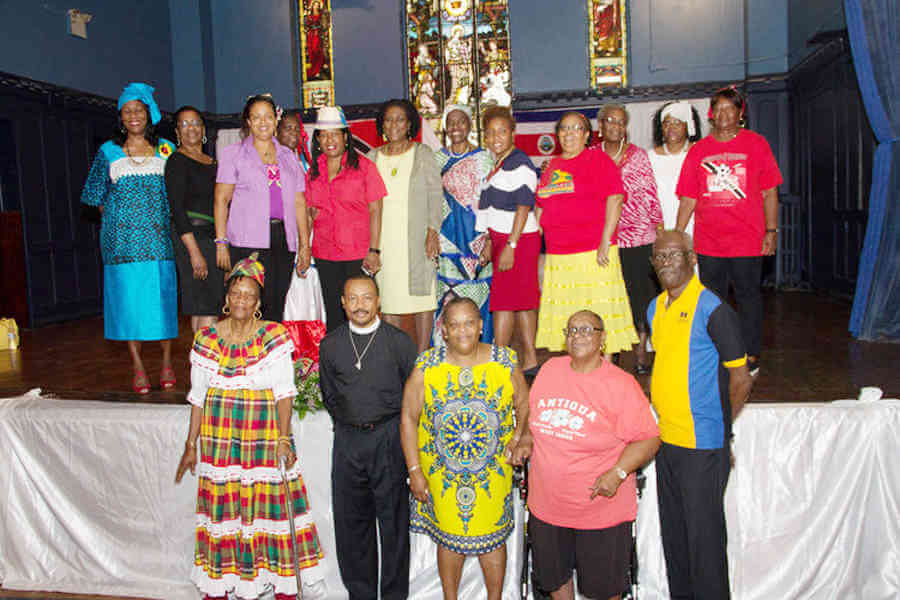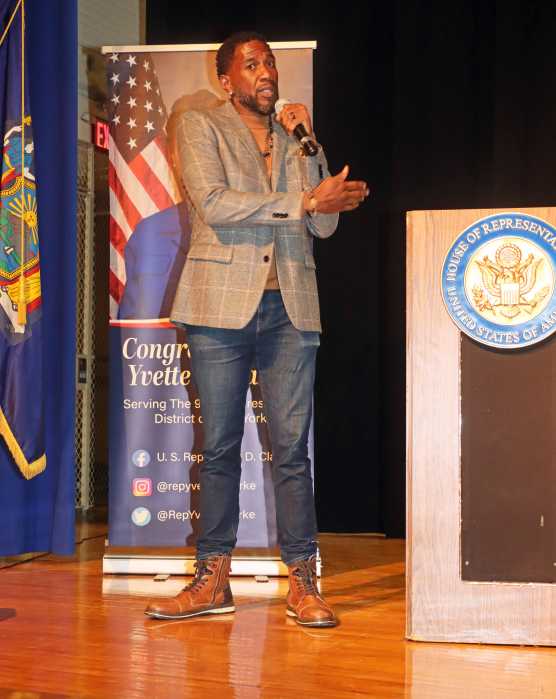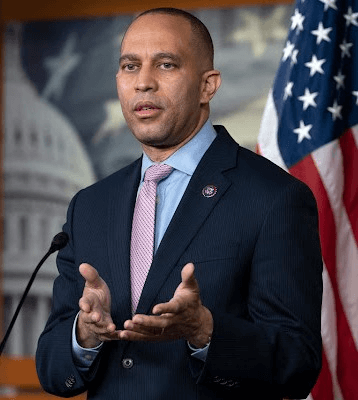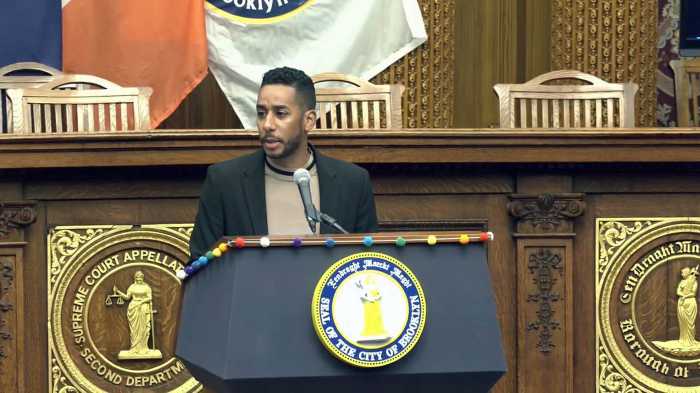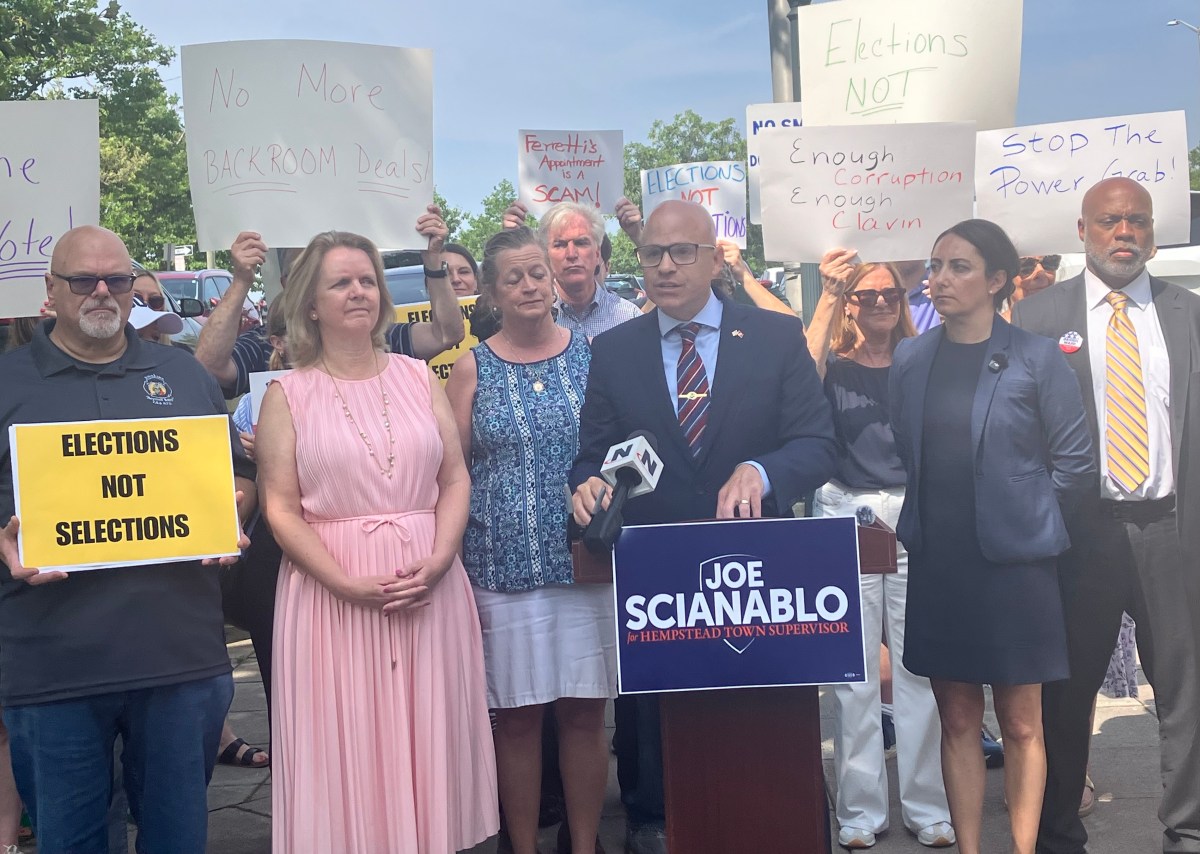Parishioners at St. Paul’s Church in the Village of Flatbush, Brooklyn celebrated their 5th annual “Homecoming and International Day Weekend” on Sept. 8 and 9 to much fanfare.
“Once again parishioners, and their friends and families converged after the summer hiatus to reconnect and bond in the cultural, spiritual and a social setting — one that helps to define the faith community of St. Paul’s, representing the 21 countries of the African Diaspora and more,” the church’s Barbadian-born pastor, the Rev. Sheldon Hamblin, told Caribbean Life.
“Not only was it an opportunity of fun and fellowship, but it was also a time for all to be socially and spiritually awakened, and to be propelled to empowerment,” he added.
Rev. Hamblin said the celebration was “all made more articulate by the very vibrant and dynamic professor, Dr. Yasser Arafat Payne, from the University of Delaware.”
Dr. Payne is an associate professor in the Departments of Sociology and Criminal Justice and the Department of Africana Studies.
Rev. Hamblin said Prof. Payne started the momentum on Sept. 8 with “the most enlightening and dynamic lecture, Participatory Action Research (PAR).
“Prof. Payne delivered a very wrenching and thought-provoking lecture on the analysis of ‘Street People’ or ‘street identity,’ and the connotation and the effects these terms have on their subjects,” Rev. Hamblin said.
“Through his close analysis of the core and multilayered system of social injustice heaved upon the voiceless in our communities, Dr. Payne exposed, through the use of authentic statistical data, the plight and inhumane treatment of these individuals,” Rev. Hamblin said.
“Very powerfully and adroitly, he took his attentive audience along a vicarious journey paved in the confines of economic poverty, explicating various aspects of structural violence theory,” he added.
Amid all this, Dr. Payne said it was “a moral imperative” that “Street People” stand firm and revolutionize the approach to research done by the “others,” who are remotely removed from comprehending the social injustice done to them, according to Rev. Hamblin.
He said seminal to Dr. Payne’s lecture was the need to take and to maintain a stance “where they become collective as a unified group and research, analyze and expose their own predicament, as opposed to leaving this kind of work in the hands of special interest groups who [which] intentionally capitalize on their misfortunes.”
On Sept. 9, Dr. Payne “pushed the envelope” further, serving as guest preacher at the sung mass and Eucharist, “where he continued his expose on social justice,” Rev. Hamblin said.
He said the underlying current of Dr. Payne’s sermon was based on the Epistle reading for the day, James 2: 1-7.
From a different but equally convincing perspective, Payne addressed the need for addressing and revisiting social justice within the communities of those considered less privileged, imploring the church to “do something,” according to Rev. Hamblin.
“He did justice to this reoccurring theme, ‘You should love your neighbor as yourselves’ and “If you show partiality, you commit and are convicted by the law as transgressors,’” Rev. Hamblin said.
He said congregants, overall, agreed that not only was the scripture timely, but so were the theme, topic and two days of celebration.
As a product of Harlem, Rev. Hamblin said Dr. Payne was “effortlessly and passionately able to convince his audiences on both occasions that, in spite of all, something good can come out of ‘street culture’ and ‘street identity,’ but it is all in the hands of these people of the ‘street’ themselves.”
Rev. Hamblin said both events ended with “focused table talk” and the opportunity to sample many of the delicacies of Africa, the Caribbean, and Central and South American cuisines.
The Homecoming culminated with a fashions show, coordinated by Mrs. Liszt and Mrs. Marlene Thompson Cleophat.
“Each country had an opportunity to strut his or her country’s cultural dress to the music, starting with The African drum, Caribbean calypso and reggae beat, and ending with Aretha Franklin’s ‘Respect,’” according to Judith Lewis, the Vincentian-born co-chair of the International Day celebration. Trinidadian Jemma Cureton was the other co-chair. Vincentian Ronesha Marksman served as Mistress of Ceremonies.
St. Paul’s Church in the Village of Flatbush is an Episcopal (Anglican) church in the Episcopal Diocese of Long Island.




